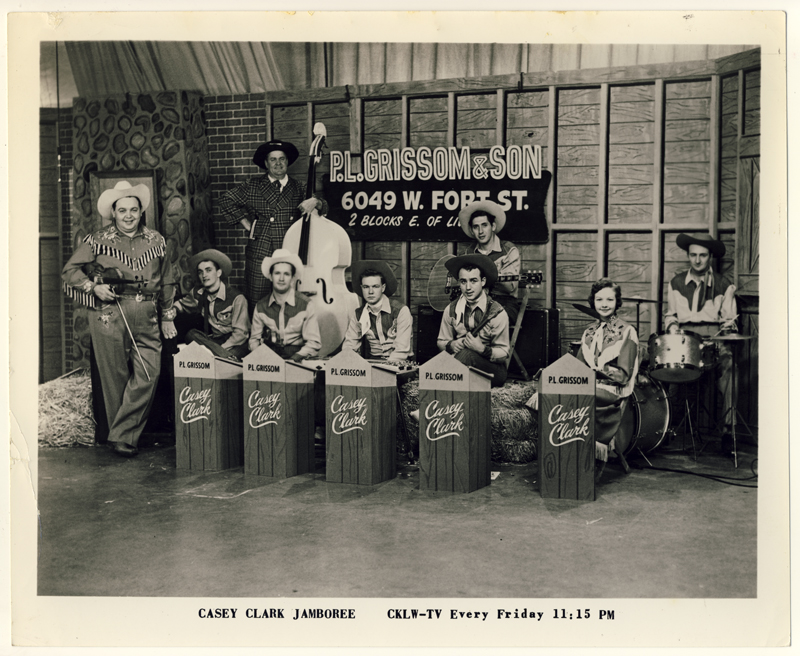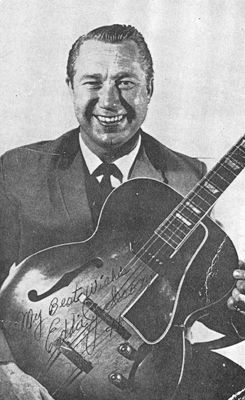Detroit’s world-renowned music culture is typically associated with Motown melodies, jazz legends, rock-n’-roll roots, turntable wizards and hip hop superstars – not country music.
Thanks to researchers Craig Maki and Keith Cady, listeners are exploring the Motor City’s forgotten country music history within their new book: “Detroit Country Music: Mountaineers, Cowboys and Rockabillies,” by University of Michigan Press.
This comprehensive study of Detroit’s lost country “scene” includes the stories of artists, such as Chief Redbird, Eddie Jackson and the York Brothers, the record companies that produced their work, the radio shows that aired their records and the venues that housed their live performances.
Maki and Cady, both Detroit-area natives, were inspired by the stories that had only been heard by rare vinyl explorers and ex-musicians. The two researchers/musicians/disc jockeys spent 13 years compiling information, interviewing artists and hunting for photographs from Detroit, to Nashville.
“My parents always listened to oldies, you know, rock-n’-roll,” Maki said. “And my dad had a few albums that had Buddy Holly and Chuck Berry: that kind of thing. So, when I got to college, they had this local rockabilly show that I would listen to every week. It was just one hour. And I loved it. So I went down to the station and said, ‘Hey, do you need any help?’ The guy said, ‘I’m glad you showed up, because I have to leave in three months. You’re going to take over.'”
Maki’s time working in radio introduced him to relatively unknown artists from Detroit’s country music past. He decided to explore the genre further by speaking with ex-industry leaders and studying vinyl records to determine how such a vibrant culture had vanished from history.
According to “Detroit Country Music: Mountaineers, Cowboys and Rockabillies,” country music erupted in the Motor City when American Southerners immigrated to Detroit for better wages and a chance at industrial-age employment. Countless sounds and styles were meshed together as musicians collaborated, which birthed sub-genres and new variations of country music.
“The big differences would be the bluegrass influences, and of course, the rockabilly,” Cady said. “But, early on, you would have had some old-timey stuff. In the 30s you had Mountain Red, who sang very simple mountain songs.”
After compiling more than a decade of research, the pair even constructed a map marking the forgotten venues of Detroit-country’s past glory.
Maki and Cady celebrated the book’s release with a signing event at downtown Detroit’s Dhive on December 13, followed by the induction of “Detroit Country Music: Mountaineers, Cowboys and Rockabillies” into the Henry Ford Museum/Greenfield Village gift shop the same month.
Maki and Cady’s next event is on January 19, from 3 p.m. to 7 p.m., at Club Canton – Michigan’s oldest country bar. The event will feature a performance by Detroit acoustic-trio Behind The Times, an open-floor jam session and a buffet-style meal.
For supplementary info regarding Detroit’s county music culture, visit the book’s official website.
Purchase “Detroit Country Music: Mountaineers, Cowboys and Rockabillies” here.


